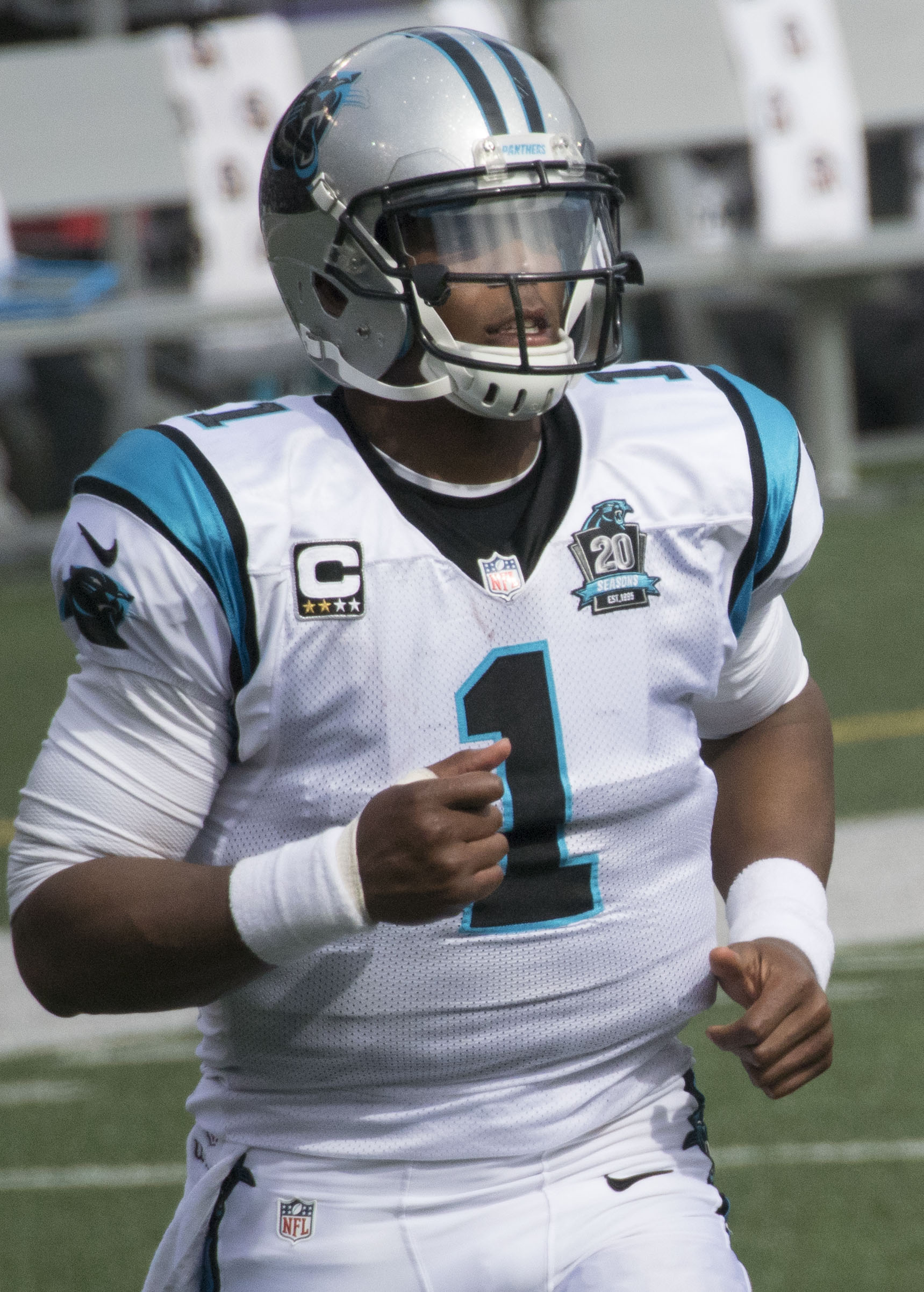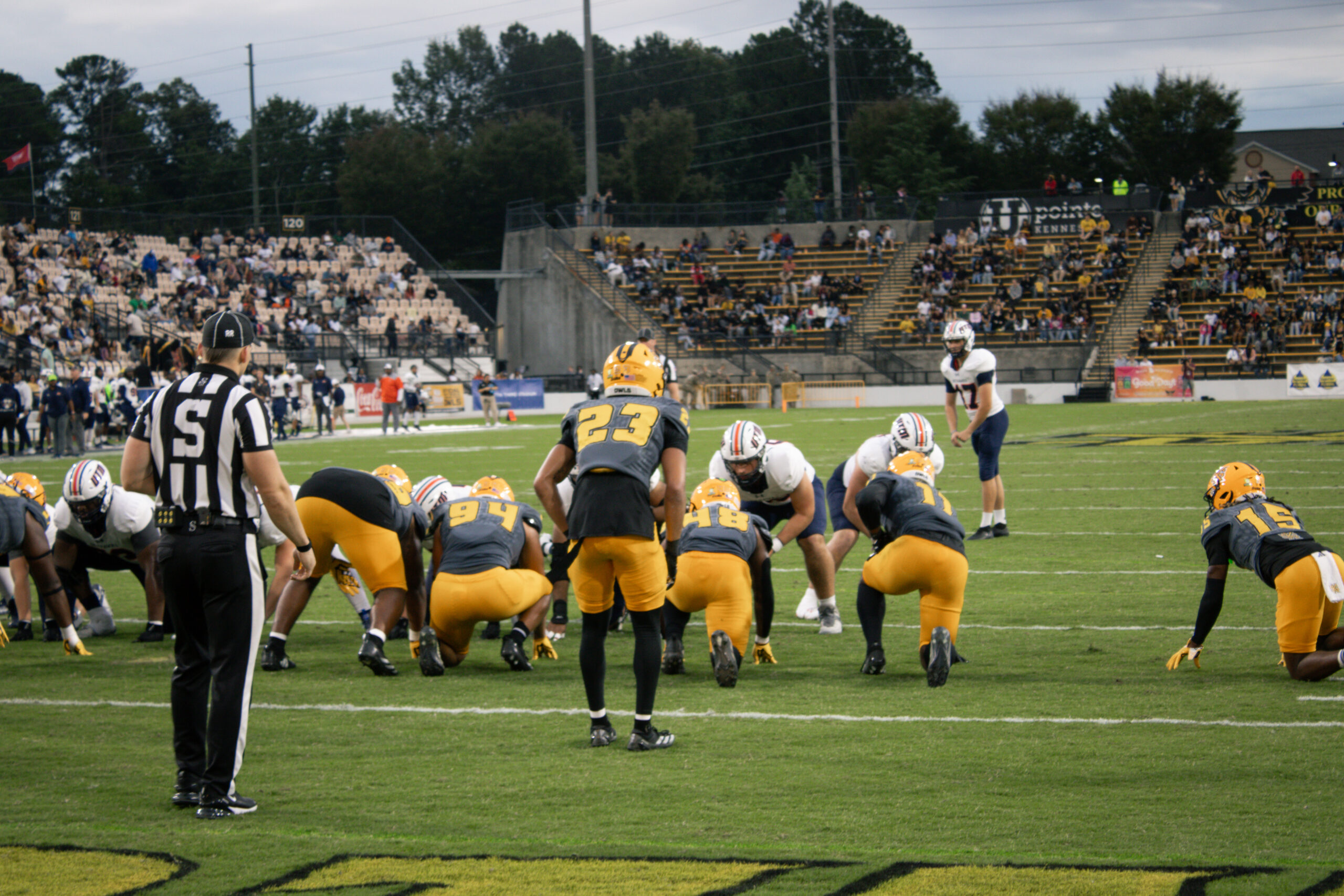After a Super Bowl 50 loss in which Cam Newton underperformed while his Carolina Panthers got pushed around by the Denver Broncos, Newton was required by NFL rule to go sit down and answer questions from media about his performance in the biggest game of his life.
Think about that.
You just played on the NFL’s biggest stage — a stage that generates over 100 million viewers each year — and laid what was, perhaps, the biggest egg of your career by scoring only 10 points in an opportunity to cement your season as one of the best in the history of the league.
Now, to be fair, this all wasn’t Newton’s fault, which he clearly verbalized in his press conference. His offensive line was bad, his receivers were bad, and he, admittedly, was pretty bad. Regardless, Newton, who has always won the “big game” in his football career, had finally fallen victim to the lights and failed to win his first chance at a Super Bowl.
As you’d expect, he was devastated. One camera showed an anguished Newton drop to the ground with a winced face as teammate Josh Norman was called for a holding penalty that set Denver up for an easy touchdown to all but put the game away.
Instead of just heading home and hiding in bed like most of us would do after a rough day, Newton then had to head to his presser. At that presser would be dozens of media members who would fight to ask him the question that would make him break. While that may sound harsh toward the media, it’s generally the truth. After a game where there isn’t much to say from the losing athlete, the media typically attempts to get the “big-time quote” from the athlete that represents the anguish of defeat.
To make matters worse, the set up of the press conference was ridiculous. Just feet away from Newton was a Broncos’ defensive player who was clearly heard boasting to reporters about the Broncos shutting Cam down and daring him to throw the football. If repetitive questions from media about your loss isn’t enough, having to hear the opposing team do interviews a few feet away certainly is.
I get it. He could’ve handled it better. Almost everyone else has handled it better. But don’t get mad at Cam Newton.
Newton, unlike others before, at least attempted to answer questions at the presser. In fact, he gave one specific answer that accurately represented how he felt about the reason Carolina lost the game. Though they clearly didn’t, the media could’ve easily identified that Newton wasn’t interested in answering anymore questions and been satisfied with the quotes he provided. Instead, they proceeded to ask near-duplicate questions about “how tough it must be to lose the game.” Yes, I think we all know the answer to that question. Once Newton heard that statement from the media member, he clenched his jaw and looked around for a moment — almost appearing to decide on if he should give the response he was thinking of — before choosing to say “I’m done” and walking out from the press conference.
The response from the sports world was quick and expected. Most depicted Newton as words that would make it seem like he offended or harmed someone: classless, arrogant, rude, selfish, sore-loser. Newton harmed no one. While it appeared he may have been debating with himself on giving responses that may have done such a thing, Newton instead gave a few small quotes and walked out when he deemed it was necessary.
Some players operate differently. Sure, recent star players like Russell Wilson and Peyton Manning have handled their post-game press conferences graciously after defeat. The problem is that Cam Newton isn’t like those two quarterbacks. The story all season has been about how Newton plays the game a different way. He’s emotional, fiery, and he wears his heart on his sleeve at all times. We had seen that used in a positive light all season as he danced and celebrated his way to a 17-1 record and Super Bowl berth while claiming the NFL MVP.
On Sunday, we saw it in a negative light.
Newton doesn’t “lose well.” It’s been clear during his entire career. While he may be able to mask that better as his career moves on and he experiences more situations that require it, as of now, he’s relatively new to it. He was victorious in both National Championships he played in while in college.
The question is, is “losing well” necessarily a good thing in sports?
LeBron James didn’t lose well. James was notorious for walking off of the court immediately after an Eastern Conference Finals loss to the Orlando Magic without shaking hands with the opposing team. He also skipped talking with reporters after the game. James’ explanation was that it was hard for him to congratulate someone that just beat him due to him being a “winner” and a “competitor.”
That has worked out well for James. He’s won two championships since that incident and has become a mainstay in the NBA Finals while being much more gracious in defeat when it does happen. Due to his ultimately unreal competitiveness and desire to be the best, James hates losing, and because of that, he doesn’t lose all that often. Newton has those same qualities. It’s a quality that isn’t noted as very acceptable in the real world, but in the sports world — in Cam’s world — it’s a quality that may drive him to be one of the best because he can’t accept losing.
So, be easy on Cam Newton. Think about what it’s like to be heartbroken in defeat and having to answer questions that nobody wants to answer just minutes after the end result. From the outside looking in, it may not seem that hard, but not many people have the same desires to be the greatest quarterback of all time like Newton does.
He wasn’t able to take a step forward in those ambitions on Sunday, and nobody should be angry that he wasn’t thrilled about answering the same questions that everyone in the world already knew the answer to.


